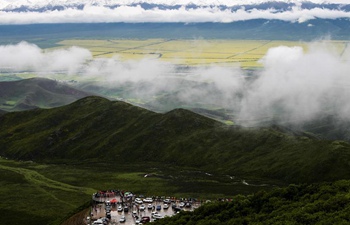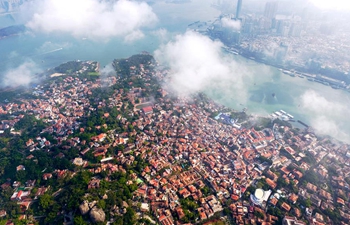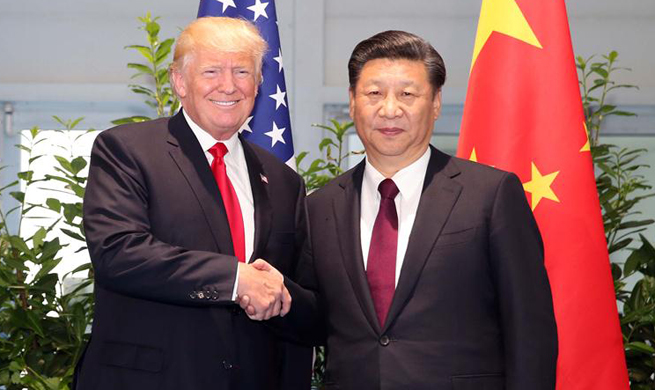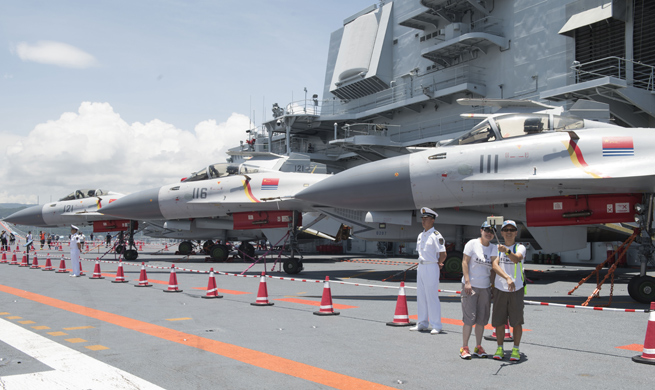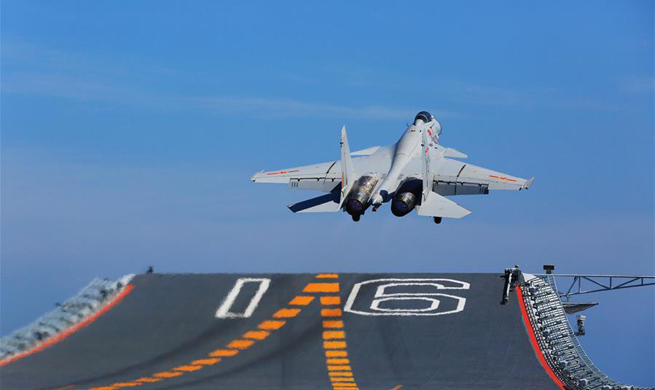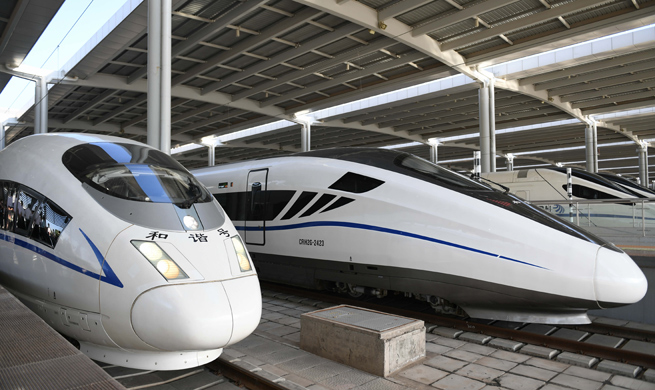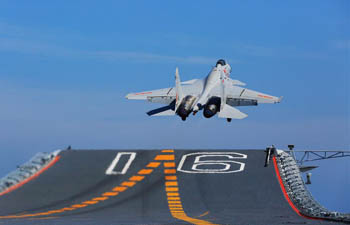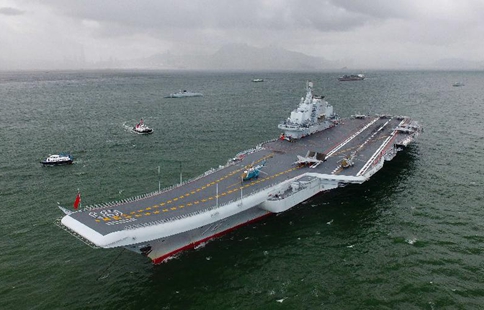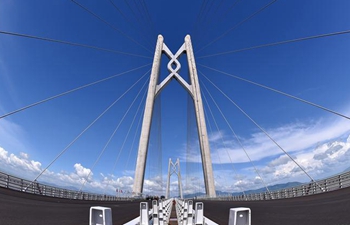CAIRO/MOSUL, July 9 (Xinhua) -- With countless casualties and around 1 million displaced, Mosul finally heard the long-awaited word "victory" from Iraqi Prime Minister Haider al-Abadi after 266 days of battles like hell.
Abadi arrived in the scarred city on Sunday, and congratulated the army on the win of liberating Mosul from the IS, nearly nine months after he announced on Oct. 17, 2016 the start of battles to retake the second largest city of war-torn Iraq.
No one, even Abadi himself, would have thought the victory came so late and cost so much, let alone huge cost in reconstruction and future fighting against terrorism.
HARW-WON TRIUMPH
With the vow on Saturday "fight to death," the IS never wanted to give up the city.
The desperate militants have been increasingly resorting to suicide attacks and showing stiff resistance that slowed the troops' progress in recent days.
Even as the victory was declared, sporadic gunfire could be heard in Mosul.
This depicts a short episode of the 266-long cruel Mosul fighting process, which composed of two major parts in eastern and western Mosul.
The Iraqi armed forces first targeted eastern Mosul.
On Oct. 31, 2016, Iraqi security forces entered Gogjali district, marking the first time it had reached the edge of Mosul after the city was taken since June 2014.
But in last December, the advances on Mosul were slowed amid grueling fighting inside Mosul with IS militants, who used civilians as human shields and resorted to suicide bombings, in addition to mortar and sniper attacks.
On Jan. 8, 2017, Iraqi security forces reached the eastern bank of Tigris River for the first time, after recapturing several new areas from IS militants in the city of Mosul.
Then on Jan. 24, Abadi declared full liberation of the eastern part of Mosul after more than 100 days of fighting against IS militants.
After nearly a month of rest and reorganization, the armed forces on Feb. 19 announced new operation to drive IS militants out of the western part of Mosul.
It turned out to be a harsher mission with longer time and more bloodshed.
Then after over three months of fierce battles, on May 29, Abadi said Iraqi forces entered the last stages of defeating IS militants in western Mosul, as about 95 percent of the city had been freed.
On June 21, Iraqi military said IS militants blew up Mosul's historic al-Nuri Mosque and its leaning minaret, where IS leader Abu Bakr al-Baghdadi declared the cross-border caliphate in Iraq and Syria in his sole public appearance in July 2014.
Abadi called the bombing "an official declaration of defeat by the Islamic State." After one week, Iraqi government forces retook control of the mosque, a victory described by the PM as the end of the self-styled IS caliphate in Iraq.
NO.1 FIASCO OF IS
Losing Mosul means the once rampant extremist group has lost nearly 90 percent of its controlled area in Iraq. The peak in 2014 saw nearly 40 percent of Iraq under IS hands.
Numerous weapons were seized or destroyed, and thousands of IS militants were killed, including senior IS leaders. Even Baghdadi was reportedly killed by an airstrike in June, which has not been confirmed.
The defeat in Mosul marks the biggest fiasco of IS since its founding, as well as an new era of post-IS in Iraq.
"(Iraqi army's) recapturing Mosul would be a complete reversal of IS sweep, and would push the extremist militants regroup in a few and isolated pockets of territories in Iraq, and would depend more on sleeper cells across the Iraq's urban areas," Major Abdullah al-Jubouri, an Iraqi army officer, told Xinhua.
"The loss of IS caliphate land in Mosul will push the Islamic State (IS) terrorist group to find an alternative land as the way forward for Jihad (holy war) against what they name apostates," Jubouri said, indicating threats of terrorist attacks like what happened in Britain, Belgium and other countries in the West.
Palestinian political analyst of international issues Hossam El Dajny believed international cooperation crucial in tackling conflicts and fighting terrorism.
"Regional conflicts, whether the Gulf conflict or the conflict of major powers, had impact on one way or another," he said. "To solve the conflicts, support of international and regional parties are needed. And use it, and employ it to serve their (terror groups) objectives and geopolitical interests in the region."
FAR FROM END OF IS
The defeat in Mosul is far from uprooting IS and terrorism from Iraq and the world.
Ilter Turan, professor of international relations at Istanbul Bilgi University, warned of further terror actions in different ways.
"We have seen that when other terrorist movements are on decline, they tend to conduct dramatic actions in order to remind everyone that they are alive and well," he noted.
Turan also believed conducting terror attacks in other places are what most terror movements would do and there is no reason to think that the IS and its supporters will constitute an exception.
"The Western societies have been taken as targets and these targets in fact may be expanded," he further warned.
Iraqi local political analyst Ibrahim al-Ameri also agreed that the Mosul victory won't put an end to the IS.
"Obviously, terrorism will continue on the ground in Iraq and Syria. And even more significantly, it will have rapidly extended its global reach," he worried.
Ameri estimated that IS will incite attacks or help organize attacks in both in Europe and the Middle East, as part of its strategy to prove Iraq and Syria are not its only goals, and fighting for governance by Islamic law is more important for them.
During the past few weeks, IS has claimed responsibility for a series of attacks in Britain in an attempt to prove that the group is still active.






